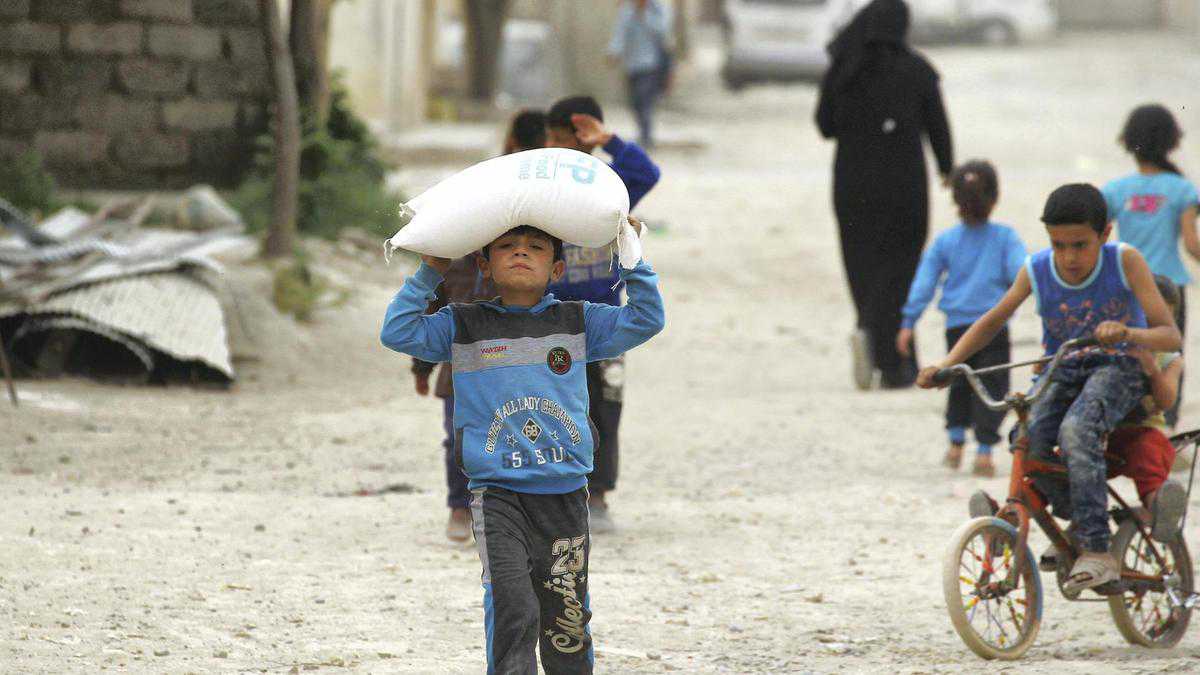School closures keep malnourished children without nutrients if they need them most
30 January, 2021

As schools all over the world have closed during Covid-19 lockdowns, many children have seen their learning suffer as face-to-face teaching has evaporated and stressed parents have already been forced to defend myself against the role of makeshift educator.
Simultaneously, children face a nutrition crisis as vast sums of them have missed from what were quite often their only meals of your day. Even for many who weren't already malnourished prior to the pandemic, removing school meals - an essential source of nutrition - has set children at a higher risk of health problems at the same time when their bodies and brains are still growing.
The consequences are widespread and several children who rely on school food are in a heightened threat of deficiencies in three important micronutrients: Iron, Zinc and Vitamin A, said Carmen Burbano, the director of the World Food Programme’s feeding division.
They are particularly important because they're linked to their cognitive abilities. “Hence not merely are they malnourished, but they’re also less in a position to take advantage of education”, she said.
This implies many children will therefore be very thin and lacking the sustenance needed when growing, and the impact is specially concerning for women and adolescents.
Girls “have particular nutrient needs, specially when it involves Iron because they begin to menstruate and they want additional nutrients in order to stay healthy,” Ms Burbano told The National.
Earlier this week, the WFP and Unicef said a lot more than 39 billion schools meals were missed during the pandemic.
Some 370 million children worldwide missed from 40 % of in-school meals normally, and already malnourished youngsters overlooked from vital, often exclusively designed meals supported and created by the UN agencies that sought to plug the gap - sometimes the only proper food a kid would eat throughout the day.
However the problems stemming out of this are far wider when compared to a child being underweight and are not simply confined to the poorest countries in the world. Obesity can even be a significant issue, when low cash flow families buy cheaper but more unhealthy food.
“In poor families, they also sometimes make an effort to maximise the budget of the friends and family and purchase less nutritious but more bulky food. So at school they obtain stuff that they don’t obtain, like fruit and veggies, they might get a tiny bit more protein, they might get yourself a more diversified diet plan,” said Ms Burbano.
“So this comes with an effect of course on the child, on their wellbeing, on the wellbeing, on their capability to learn and to stay in school.”
Aid from the WFP will not simply come through food supplies, but also supplements and help with a healthy way of living. Ms Burbano explained school meals programmes often teach children to consume more healthily, an essential concern in middle and excessive income countries.
“Children from households that don’t necessarily eat well are also prone to obesity challenges, which also comes from a fundamental issue of not necessarily knowing what good diet is.”
Moving forward, UN agencies need schools to reopen when they safely can easily. Evidence implies that in poor family members school meals are equal to up to 12 % of household income on a monthly basis.
Some 24 million children are in risk of dropping out of education as a result of Covid-19 and evidence implies that school meals can incentivise them to come back. The harm to children’s learning from the closures of classrooms offers been widely documented, but lockdowns have also had a severe influence on the fitness of young people too.
“The big alarm is actually to ensure that governments know the enormous loss that they are going to incur over a long time if we lose an enormous cohort of children to the crisis,” said Ms Burbano.
Source: www.thenationalnews.com
TAG(s):
